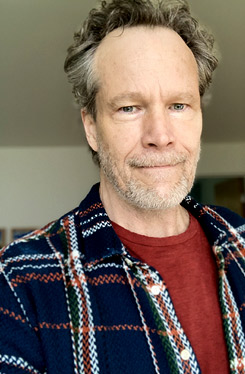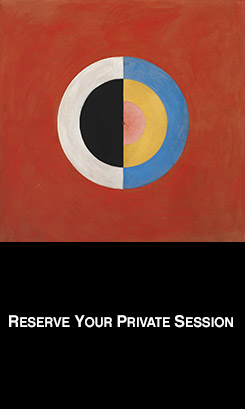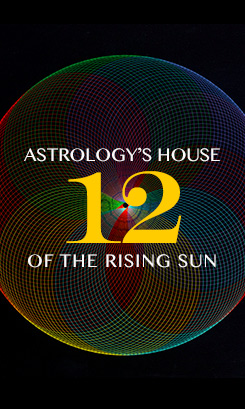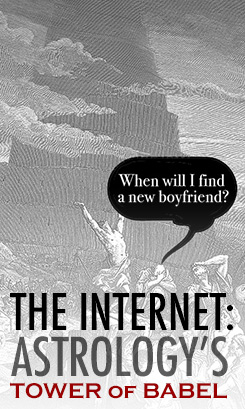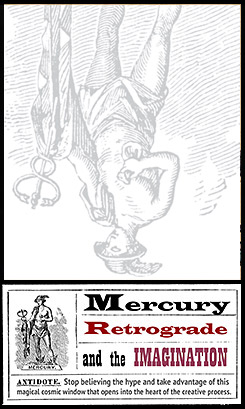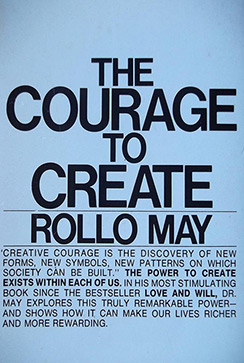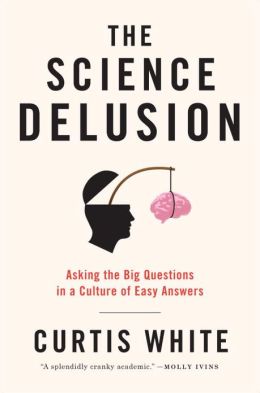Rollo May: The Catch-22 of Technology
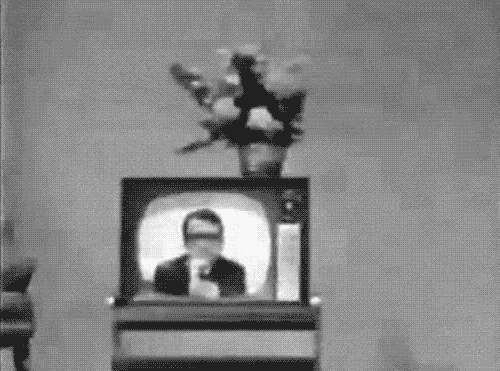
“What people today do of fear of irrational elements in themselves and in other people is to put tools and mechanisms between themselves and the unconscious world.
This protects them from being grasped by the the frightening and threatening aspects of irrational experience.
I am saying nothing whatever, I am sure it will be understood, against technology or mechanics in themselves.
What I am saying is that danger always exists that our technology will serve as a buffer between us and nature, a block between us and the deeper dimensions of our experience.
Tools and techniques ought to be an extension of consciousness, but they can just as easily be a protection against consciousness. This means that technology can be clung to, believed in, and depended on far beyond its legitimate sphere, since it also serves as a defense against our fears of irrational phenomena.
Thus the very success of technological creativity … is a threat to its own existence.”
–Rollo May
Bright Thoughts: The Mitch Horowitz Interview
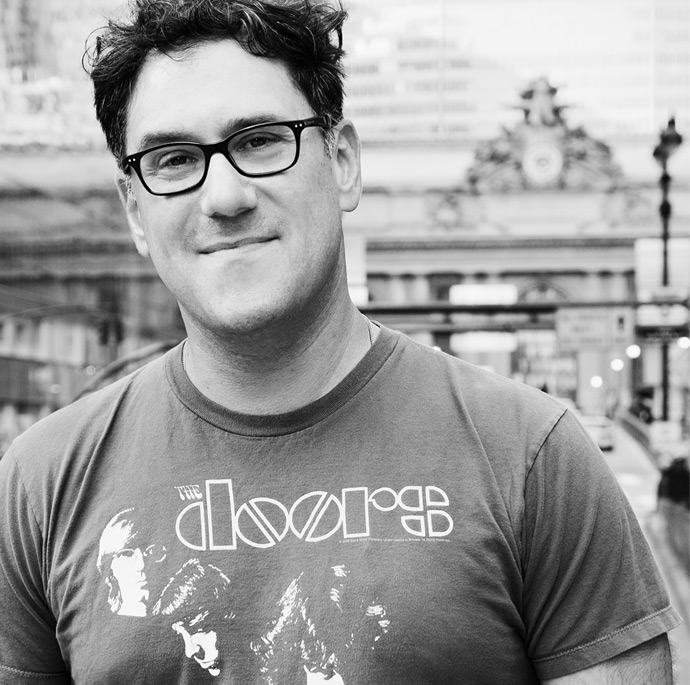
In the opening to his new book One Simple Idea: How Positive Thinking Reshaped Modern Life, author Mitch Horowitz recounts his childhood fascination with inspirational wisdom.
For him it all began with a poem that hung on the wall in his big sister’s bedroom. A blacklight poster that included phrases like:
“Forget yesterday. I am where I am. Tell me friend, what can I do today, to be where I want to be tomorrow?â€
When Mitch’s father lost his job and financial conditions in the family took a downward arc, his curiosity about the possibilities of positive thinking grew, leading him to eventually study the writings of Emerson and Talmud. His hope was that his internal attitude and perspective of mind could make a difference.
Horowitz attributes aligning with uplifting thoughts as a remedy that didn’t so much as change his family’s fortunes –- which did gradually improve — but as a practice that helped him “navigate his life. And maybe something more.â€
And it’s that “something more†that Horowitz explores in detail in his meticulously researched book. Read more
Farm Animal Activist Gene Baur: Cheap Food, Agonizing Deaths & Sexless Turkeys

I’ve toggled in and out of vegetarianism for years. There were points in my life where the necessity to eat meat (or the belief that it was a necessity) felt crucial. But as I’ve matured I’ve come to see that most of what I thought about meat was inaccurate, not relevant, and based on whim, ease and, well, self-interest — rather than the ‘bigger picture.’
Everything eats and is eaten. Life eats life. This is a fact. But as our consciousness shifts, evolves, can we take life (to consume it) more consciously? Be that organic gardening, non-GMO food stuffs, humane slaughter houses (what an oxymoron that is)? Or become intelligently aware (not obsessive) with our nutritional needs so that there is balance and sanity amidst our consumption. And awareness of how those needs impact the world and the creatures that live in the world with us.
Presently I live on coffee, wine, salmon, vegetables, nuts and protein from egg whites. No gluten (or very little). Also some kind of treat: Cookies, muffins or an 18-pound box of See’s candy [I’m kidding.] But I do keep the treats gluten free.
But with meat. Oy. Watching one too many Youtubes showing the horrific, often deliberately cruel condition that chickens and cows must live through with what little they even have of a lifespan, tipped the tipping point for me. And then too, what of the workers in these plants and the impact of endless slaughtering on their psyches?
I had to stop and consider what I was aiding and abetting for the sake of convenience while shopping with a budget in mind. Meaning: Everything chopped, washed, wrapped and put on gleaming display in the meat section with an affordable price tag attached. Yes, all the necessities in place to make me not have to think about what I would have to experience if I were finding or raising my own animals and then murdering them.
No more.
Watch this interview with activist Gene Baur where he discusses cheap food, annoying protestors and the rise of giant sexless turkeys and let me know what you think and if this makes any impression on your dietary choices. I’d like to hear from you.
Hat tip to Godfrey Hamilton for pointing this Time interview out to me.
“Like” My Death and Chicken Scratchin’

Another friend dead.
Another Facebook page still active.
I understand the deceased’s family has to involve the Attorney General to get FB to remove a dead person’s profile. Why?
But then — hell — still living, I tried to delete my Vine account last week and it was impossible to do it. I needed to contact the president of the company or equivalent and get his permission.
Vines. How entwined, how enmeshed are we into these cross-connects of social networks? And why do the corps that run them need me so desperately to stay? Alive…or dead?
Five friends have died since I joined Facebook about 7 years ago. And it’s weird and now doubly voyeuristic to visit their pages when curiosity overcomes me. And it does. I click in and trawl around. It’s kind of awful.
Friends and family continue to scrawl comments — especially around holidays and anniversaries — as if the dead person can ‘read’ them. Nothing says disconnected from reality like: “Love you babe, I know you’re reading this somewhere. Here’s a picture of Tammy’s new baby.” Shit like that.
But then how ‘real’ is any of the interacting that occurs here, now, with the ‘living’.
I could have dropped dead after typing this post and a handful of you would be commenting, liking, and I might be writhing on the ground alongside my desk, savoring my last breath and getting the strangest download:
I’m imagining Hamlet at the grave and he’s turning the skull ’round and there’s a Facebook ‘LIKE’ logo etched into the dome-top. And for a soundtrack there’s that line from Joni Mitchell‘s Hejira:
‘Well I looked at the granite markers
Those tributes to finality, to eternity
And then I looked at myself here
Chicken scratching for my immortality’
I guess that’s part of the big unconscious draw to leaving trails on FB — be ye alive or dead — ‘chicken scratching’ for our immortality. And of those that have already flown the coop? They’re liking this in heaven.
Painting by Eugène Ferdinand Victor Delacroix, 1939, Louvre Museum
What I’ll be Reading This Month

Bumbling around the web tonight, drinking tea and trying not to disturb the cat while she teetered on one of my thighs, while the laptop teetered on the other, I encountered a slew of articles that irritated the shit out of me.
The first one was over on Salon, where it discussed how tech corporations are attempting to co-opt the practice of Buddhist meditation to up the well-being and job performance of their employees. Reading that felt like chewing on a piece of tin foil. I recoiled and started doing a bit more research and discovered this statement from Google’s Search Inside Yourself Leadership Institute website:
“Developed at Google and based on the latest in neuroscience research, our programs offer attention and mindfulness training that build the core emotional intelligence skills needed for peak performance and effective leadership. We help professionals at all levels adapt, management teams evolve, and leaders optimize their impact and influence.”
Uhm…OK…
So now mindfulness is enabling corporations to “optimize impact�
That’s just what I want more of in my life — corporate optimization.
And I echo culture critic Curtis White‘s response, when he noted:
“In this view of things, mindfulness can be extracted from a context of Buddhist meanings, values, and purposes. Meditation and mindfulness are not part of a whole way of life but only a spiritual technology, a mental app that is the same regardless of how it is used and what it is used for.”
Having read that quote I went on a search for the interview the quote was lifted from, and I found it here, titled The Science Delusion, over on Tricycle.
You need to read it to understand the particular gulf we live in today. Especially if you are a young person contemplating your future. The implications for the arts and humanities are disturbing, unless of course your only aim is to have a tremendous amount of followers on YouTube because you’re able to shill Doritos to your followers and then Frito-lay cuts you a check (depending on the number of video views, of course). See Frontline’s Generation Like for more insights into that nightmare.
And then Consider White’s ideas here, from the same Tricycle interview. And then buy his book.
“Anyone who doubts the seriousness of this vision should read David Brooks’s December 2013 column for The New York Times “Thinking for the Future,†in which he predicts that the economy of the future will depend upon “mechanized intelligence.†Fifteen percent of the working population will make up a mandarin class of computer geeks and the “bottom 85%†will serve them as “greeters†or by doing things like running food trucks. And yet, Brooks claims, this vast class of servants will have “rich lives†that will be provided for them by the “free bounty of the Internet.†“
Adam Curtis: Pop Culture’s Edgiest Truth-Teller
world today is through the eyes of the computers.” — Adam Curtis
I discovered documentary filmmaker Adam Curtis a couple of years ago when my friend, the writer John Calendo, forwarded me a link to Curtis’ 2011 film All Watched Over By Machines of Loving Grace with an ammendment: “This is weird, so you’ll like it.”
On the surface (not a good place to go for a description of Curtis’ work) this looked to be a documentary about how computers and people have come to co-exist. But no. This was a bold salvo that cracked open the notion of how computers have colonized the world by playing off of our inability to tolerate uncertainty and the unknown. Computers promise systems and control and people like control.
Remember in Stanley Kubrick‘s 2001, when HAL is slowly disassembled by Dave and the computer keeps moaning: “Stop. Don’t do that Dave. I can feel myself fading.” Well, that was a fine bit of prescience that Curtis’ film indirectly explores. Computers and feelings. Feelings as visions. Visions as the future. A ridiculous confluence? Not really when you consider the power of identification and what identification can wreak when wedded to machines.
Revisit the devastating economic crash that destroyed East Asia in 1997 or the ‘recovery’ we are still stuck in after the global economic meltdown of 2008 — all directly related to the manipulation of the markets via computers. Or doubly unimaginable, revisit the utopian visions of the counterculture movement in the 60s. Those dreamscapes of returning to the organic rhythms and glorious symmetry of nature.
Those were computer-based ideals that took hold like a fever as techno models more and more came to be considered the perfect matrix to build a new world upon. They do not exist in nature, as Curtis shows. Nature leans towards the chaotic. But not so, when framed in a computer-based template.
Even the title to Curtis’s film is taken from the hippie poet Richard Brautigan, who wandered through early 60s Haight-Ashbury, distributing xeroxed copies of his idyl to whomever would have them. Man and machine cohabiting in constant bliss. It seems a crazy conceit of the counterculture ethos, but, again, as Curtis shows, this concept was based on computer systems as matrixes for creating a better society.
His documentary, All Watched Over… disconcertingly opens with Pizzicato Five‘s pop song Baby Love Child bouncing through the soundtrack while images of people jacked into computer screens stream by. The rapt computer users remind me of those “dairying ants” that milk aphids for honeydew, a juice that’s excreted from the aphid’s ass. Meaning, there is a constant, never-broken attention loop projected into the computer screen, as if nourishing forces are flowing from the screen’s glow, into its viewers’ brain-holes. It is weird.
And then, boom, a disruptive cut, a studio tech’s blaring announcement amidst the disintegrating soundtrack and we’ve jumped back 55 years to a Mike Wallace interview with the doyen of capitalism, Ayn Rand — her dark, darting bird eyes scanning the studio furtively. Read more








